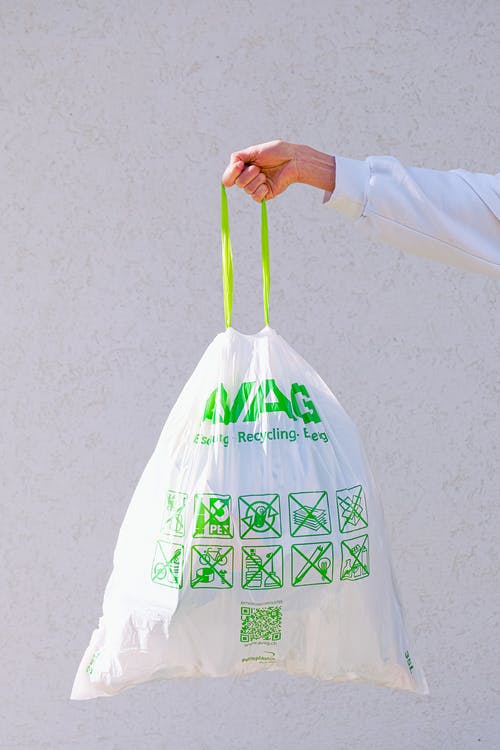In the pursuit of a sustainable future, the journey of waste from disposal to recycling plays a pivotal role. This comprehensive guide explores the innovative processes and technologies that are revolutionizing waste management, paving the way for a greener and more eco-conscious tomorrow.
Understanding the Urgency
The Global Waste Challenge
With the world grappling with a mounting waste crisis, recycling emerges as a crucial solution. Landfills are overflowing, oceans are burdened with plastic, and ecosystems are strained. It’s time to unveil the transformative journey of recycling that holds the promise of mitigating this environmental crisis.
The Environmental Impact
Waste disposal contributes significantly to pollution, deforestation, and the depletion of natural resources. Recycling not only diverts waste from landfills but also reduces the need for raw materials, conserving energy and lessening the environmental footprint.
The Recycling Process Unveiled

Collection and Sorting
The journey begins with the collection of recyclables from various sources. Advanced sorting technologies, such as automated conveyor belts and optical scanners, streamline the process, ensuring efficient segregation of materials like paper, glass, plastic, and metal.
Cleaning and Preparing
Recyclables undergo a thorough cleaning process to remove contaminants. Once cleaned, materials are prepared for processing. Paper is shredded, plastics are melted and molded, glass is crushed, and metals are smelted. This preparation is crucial for creating high-quality recycled products.
Innovative Recycling Technologies
Advanced Materials Recovery Facilities (MRFs)
Modern recycling facilities, known as Materials Recovery Facilities (MRFs), integrate cutting-edge technologies for automated sorting and processing. These facilities enhance the efficiency of recycling by reducing manual labor and increasing the recovery rate of recyclable materials.
Chemical Recycling
Chemical recycling is revolutionizing the treatment of plastics. Unlike traditional mechanical recycling, chemical processes break down plastics into their original building blocks. This method allows for a broader range of plastics to be recycled, including those traditionally considered non-recyclable.
The Impact of Recycling on Industries
Circular Economy Practices
Recycling promotes the concept of a circular economy, where materials are continually recycled and reused. This approach minimizes the reliance on finite resources and fosters a sustainable and regenerative economic system.
Job Creation and Economic Benefits
The recycling industry contributes significantly to job creation and economic growth. From collection and sorting to processing and manufacturing, recycling creates employment opportunities and stimulates local economies.
Navigating Recycling Challenges
Contamination Issues
Contamination remains a challenge in the recycling process. Improper disposal of non-recyclables in recycling bins can compromise the quality of materials and disrupt the efficiency of recycling operations. Public education and awareness are crucial in addressing this issue.
Technological Advancements
Continued research and investment in recycling technologies are essential for overcoming existing challenges. Innovations in robotics, artificial intelligence, and sustainable packaging solutions can further enhance the efficacy of recycling processes.
The Role of Individual Actions
The Power of Consumer Choices
Individuals play a pivotal role in the success of recycling efforts. Making informed consumer choices, such as opting for products with eco-friendly packaging and properly sorting recyclables, contributes to the overall effectiveness of recycling initiatives.
Community Engagement
Local communities can organize recycling drives, educational programs, and advocacy initiatives to promote responsible waste management practices. Community engagement fosters a collective commitment to a greener and more sustainable environment.
A Greener Tomorrow Through Recycling
As we unveil the transformative journey of recycling, it becomes evident that each step in the process contributes to a sustainable and eco-conscious future. From innovative technologies to individual actions, the collective effort to revolutionize waste management is key to realizing a greener tomorrow.
Advocating for Policy Changes
Beyond individual and community actions, advocating for policy changes is crucial in establishing a robust framework for sustainable waste management. Governments and regulatory bodies can play a pivotal role in incentivizing recycling initiatives, enforcing waste reduction measures, and promoting extended producer responsibility.
Embracing a Lifestyle of Sustainability
In the quest for a greener tomorrow, embracing a lifestyle of sustainability is paramount. This includes reducing overall waste generation, supporting eco-friendly products, and actively participating in recycling programs. By integrating sustainable practices into our daily lives, we contribute to the broader movement towards a more environmentally conscious society.
In conclusion, the transformative journey of recycling goes beyond mere waste management; it embodies a collective commitment to preserving the planet for future generations. As we navigate this journey, let us be mindful of our environmental impact, champion sustainable practices, and envision a world where recycling is not just a process but a way of life.

